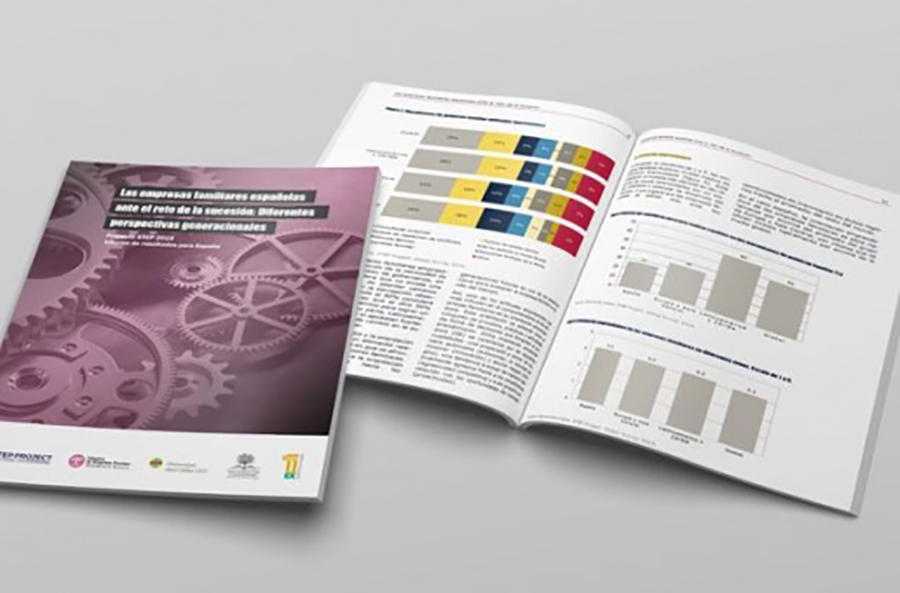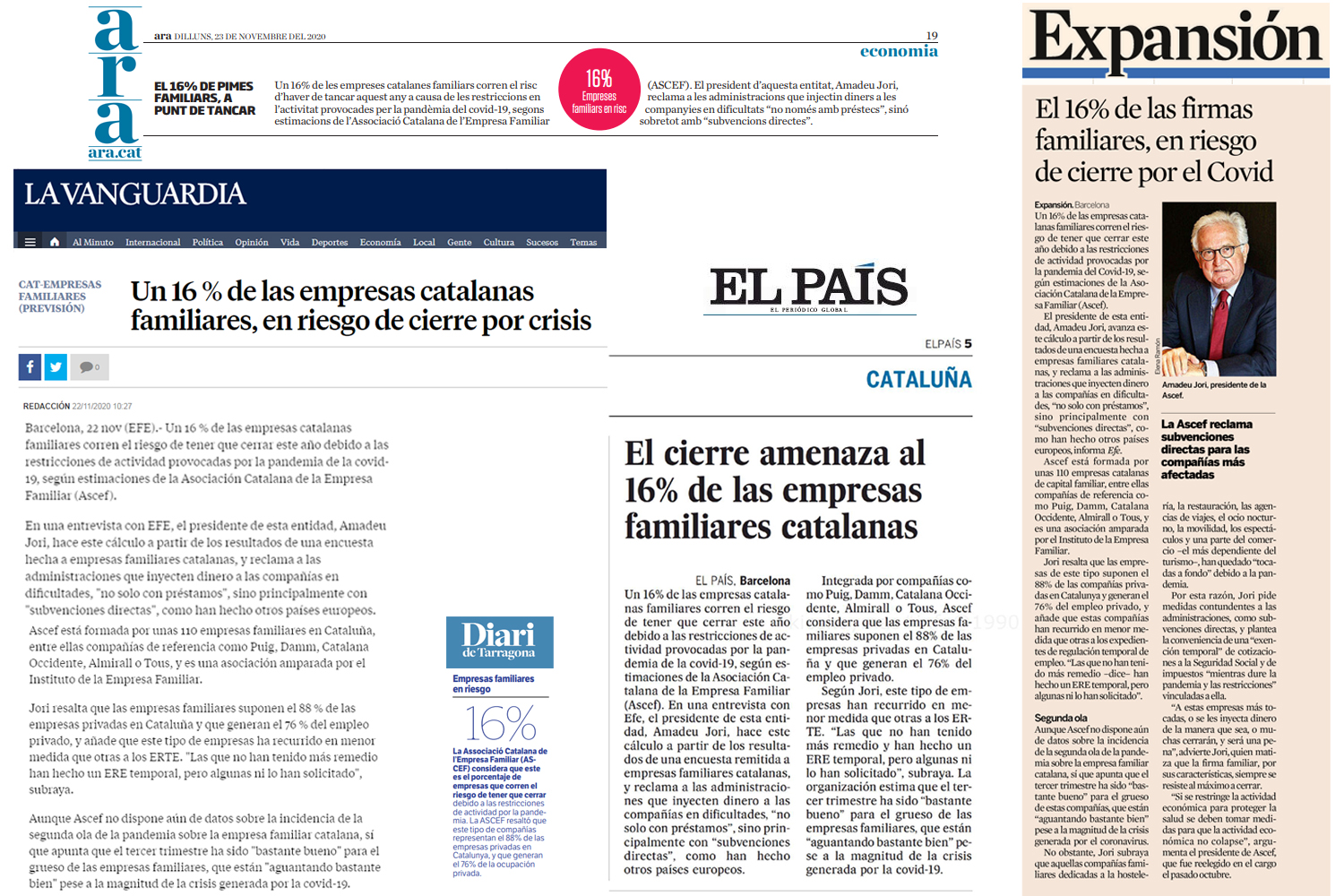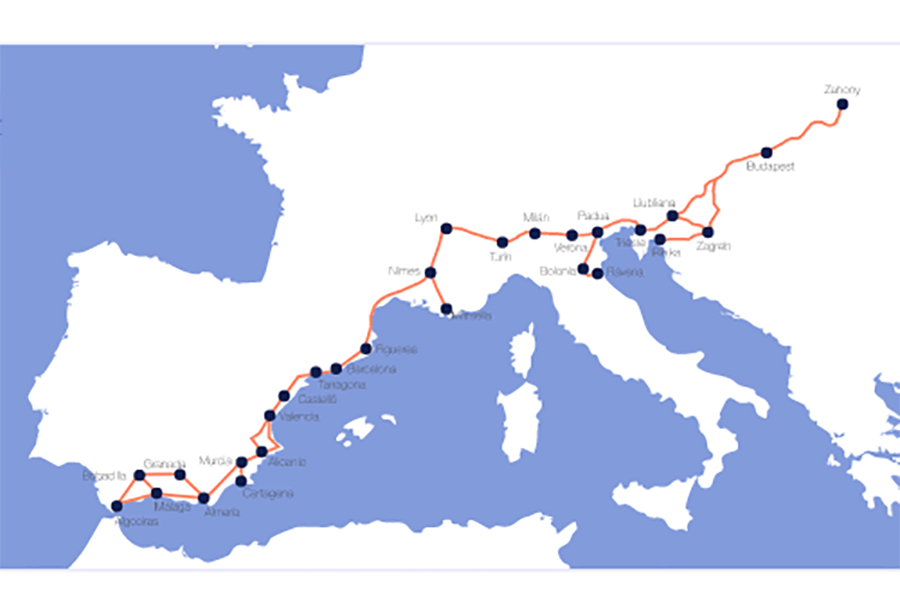The Catalan Association of Family Businesses (ASCEF) held its Annual Meeting on November 26 under the title “Family businesses: managing with values“. Due to the current pandemic, this year’s event took place in a hybrid format: in-person at Barcelona’s Hotel Clarís, in observance of the measures and recommendations on hygiene and health, as well as online.
Amadeu Jori, the ASCEF President, and Luis Herrero, Banco Santander’s Institutional Territorial Director in Catalonia, welcomed all those attending this Annual Meeting edition, which revolved around the values possessed by all family businesses that distinguish them from other organisations.
Moderated by Dr Juan Corona, Academic Advisor of the Family Business Institute and Professor of Applied Economics at Abat Oliba CEU University, the Annual Meeting featured a round table of businessmen who offered their views on the family business. These were Antonio Gallardo, Honorary Vice-President of Almirall and Honorary President of ASCEF; Pablo Lara, General Manager of the Education Department of Grupo Planeta; and Ramón Agenjo, Board Member and Secretary of S.A. DAMM. They highlighted that what lends a company personality are its values and this therefore makes a family business different from the rest.
As challenges for family businesses in the future, the trio highlighted the internationalisation of companies, possessing and attracting talent, and learning a lot from the others: where they have gone wrong and what they have done well.
The ASCEF Annual Meeting was sponsored by Banco Santander. Its Commercial Director of Companies in Catalonia, Sergi Farro, gave a talk entitled “Our support and Financial Solutions to the Covid Environment“. In this, he examined what has happened during the recent months of economic crisis, the key elements today for companies (internationalisation, digitisation, possessing liquidity, adaptability and speed in decision-making). He concluded by focusing on the unknown that is 2021, the current signs of optimism notwithstanding.





